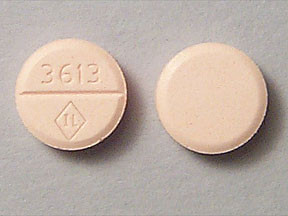ISOSORBIDE DINITRATE SUSTAINED-ACTION - ORAL
PHONETIC PRONUNCIATION: (EYE-soe-SOR-bide dye-NYE-trate)
COMMON BRAND NAME(S): Dilatrate-SR, Isochron
GENERIC NAME(S): isosorbide dinitrate
Uses
USES: Isosorbide dinitrate is used to prevent chest pain (angina) in patients with a certain heart condition (coronary artery disease). This medication belongs to a class of drugs known as nitrates. It works by relaxing and widening blood vessels so blood can flow more easily to the heart. This medication will not relieve chest pain once it occurs. It is also not intended to be taken just before physical activities (such as exercise, sexual activity) to prevent chest pain. Other medications may be needed in these situations. Consult your doctor for more details.
How to use ISOSORBIDE DINITRATE SUSTAINED-ACTION - ORAL
HOW TO USE: Take this medication by mouth, usually once or twice daily or as directed by your doctor. If you are using this medication twice daily, take the first dose of the day when you wake up, then take the second dose 6 to 7 hours later. It is important to take the drug at the same times each day. Do not change the dosing times unless directed by your doctor. Swallow the capsules whole. Do not crush or chew the capsules or tablets. Doing so can release all of the drug at once, increasing the risk of side effects. Also, do not split the tablets unless they have a score line and your doctor or pharmacist tells you to do so. Swallow the whole or split tablet without crushing or chewing. Use this medication regularly to get the most benefit from it. Do not suddenly stop taking this medication without consulting your doctor. Some conditions may become worse when the drug is suddenly stopped. Your dose may need to be gradually decreased. Although unlikely, when this medication is used for a long time, it may not work as well and may require different dosing. Tell your doctor if this medication stops working well (for example, you have worsening chest pain or it occurs more often).
Side Effects
Precautions
Interactions
Overdose
Images

- color
- peach
- shape
- round
- imprint
- 3613 IL
Reviews
Faq for ISOSORBIDE DINITRATE SUSTAINED-ACTION - ORAL
Isosorbide Dinitrate Sustained-Action is used to prevent and relieve chest pain (angina) in patients with coronary artery disease.
It works by relaxing and widening blood vessels, allowing more oxygen and blood flow to the heart. This helps relieve chest pain and prevent angina attacks.
The dosage varies depending on the individual and their medical condition. It is important to follow the instructions given by your doctor or pharmacist. Usually, the recommended starting dose is 20 mg, taken once or twice daily.
This medication can be taken with or without food. However, it is recommended to take it on an empty stomach for better absorption.
Some common side effects include headache, dizziness, lightheadedness, flushing, and nausea. These side effects are usually temporary and may subside with continued use. Contact your doctor if they persist or worsen.
It is important to inform your doctor about any existing medical conditions, especially low blood pressure, liver disease, or heart problems. Isosorbide Dinitrate Sustained-Action may interact with certain medications, so it is crucial to provide a complete list of all medications, supplements, and herbal products you are taking.
It is not recommended to use Isosorbide Dinitrate Sustained-Action during pregnancy or breastfeeding unless specifically prescribed by a doctor. It is important to discuss the potential risks and benefits with your healthcare provider.
If you miss a dose, take it as soon as you remember. However, if it is close to the next scheduled dose, skip the missed dose and continue with your regular dosing schedule. Do not double the dose to make up for a missed one.
Disclaimer
IMPORTANT: HOW TO USE THIS INFORMATION: This is a summary and does NOT have all possible information about this product. This information does not assure that this product is safe, effective, or appropriate for you. This information is not individual medical advice and does not substitute for the advice of your health care professional. Always ask your health care professional for complete information about this product and your specific health needs.

No Reviews Yet